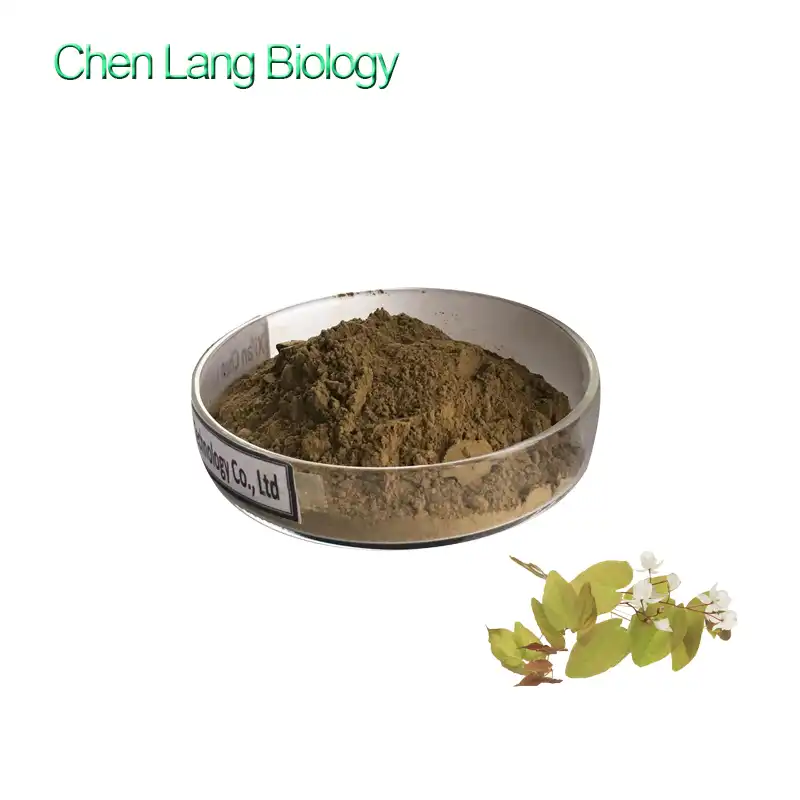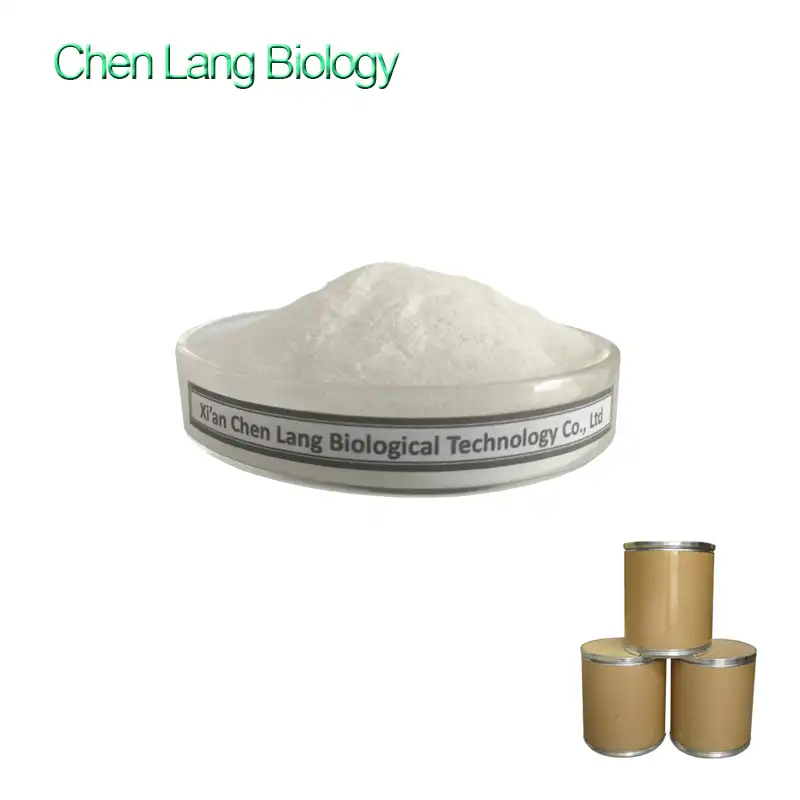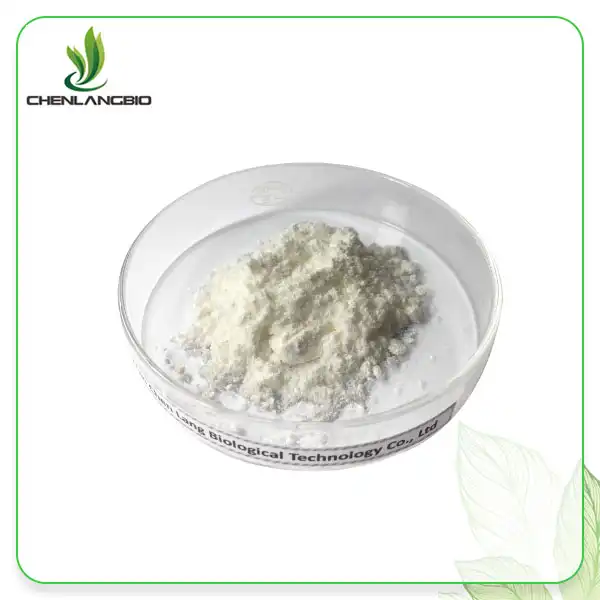Are Hops Flavonoids Safe to Consume
2024-12-09 15:56:44
The possible health advantages of hops flavonoids have attracted a lot of interest lately. Found in the hop plant (Humulus lupulus), these naturally occurring molecules have antioxidant qualities and probable medicinal action. Many people are looking to natural supplements and ingredients to boost their well-being as consumers grow more health-conscious. This article explores the safety profile of hops flavonoids, delving into their potential benefits, possible side effects, and considerations for consumption. We'll examine scientific research, expert opinions, and practical considerations to provide a comprehensive overview of hops flavonoids and their place in a healthy lifestyle.
Understanding Hops Flavonoids
The Nature of Hops Flavonoids
Found in the hop plant, the varied collection of polyphenolic chemicals known as hops flavonoids. These beneficial compounds belong to the bigger family of flavonoids, well known for their antioxidant action. Originally used mostly in beer making, the hop plant has several flavonoids including 8-prenylnaringenin, xanthohumol, and isoxanthohumol. The possible health-promoting properties of these substances have attracted researchers' attention. Sources of Hops Flavonoids Although hops are most usually connected with the manufacturing of beer, hops flavonoids can be found from several sources. Concentrated hop extract dietary supplements are becoming somewhat common. Furthermore included in certain herbal teas and non-alcoholic drinks is hops. The source and processing techniques can greatly affect the content of flavonoids, as noted above.
Bioavailability and Absorption
Hop flavonoids' effectiveness is intimately related to their bioavailability, or degree of absorption and use by the body. Studies point to food composition, gut flora, and personal metabolic variations as possible influences on hop flavonoid absorption. Using delivery technologies and formulations that boost their solubility and absorption in the gastrointestinal tract has been investigated as means to increase the bioavailability of several drugs.
Potential Health Benefits of Hops Flavonoids
Antioxidant Properties
The antioxidant power of hops flavonoids is among their most thoroughly investigated qualities. These molecules have shown capacity to neutralize dangerous free radicals, linked to oxidative stress and cellular damage. Hop flavonoids may help to maintain general cellular health and maybe lower the risk of chronic diseases related with oxidative damage by addressing oxidative stress. Ponders on bounces flavonoids' antioxidant movement have uncovered that they might be either rise to to or indeed past those of other well-known cancer prevention agents as vitamin C and vitamin E.
Anti-inflammatory Effects
Numerous wellbeing clutters, counting cardiovascular illness, diabetes, and a few malignancies, have as their common basic cause persistent inflammation. Promising in their capacity to diminish incendiary reactions in the body are bounces flavonoids. Considers have appeared that these substances might piece pro-inflammatory arbiters and chemicals, so giving a characteristic way to treat maladies associated to aggravation. In spite of the fact that extra ponders are required to totally get it the atomic instruments and long-term adequacy of jumps flavonoids in this particular setting, the preparatory discoveries are empowering and show that they may have restorative points of interest.
Inflammation regulation, antioxidant defense enhancement, and metabolic balance support are just a few of the potential physiological effects of hops flavonoids, according to preliminary research. The increasing focus on natural chemicals as potential treatments for oxidative stress, metabolic syndrome, and chronic inflammation makes these results all the more interesting. Although useful, the majority of the data currently available originates from in vitro and animal studies, which are considered preclinical research and so cannot be directly translated to human health consequences. Therefore, more carefully planned clinical trials are required to confirm the correct doses and treatment durations, and to gain a better grasp of the potential effects of hops flavonoids. Until more comprehensive data becomes available, caution and moderation are advised when considering the use of hops flavonoids as a supplement, and individuals should seek guidance from healthcare professionals.
Metabolic Health Support
New studies point to hops flavonoids' possible support of metabolic health. Analysts have looked at how these atoms might influence body composition, lipid profiles, and glucose metabolism. For case, in preclinical inquire about xanthohumol, a well-known jumps flavonoid, has been connected to brought down chance variables for metabolic disorder and upgraded affront affectability. In spite of the fact that human considers on jumps flavonoids are right now few, the existing investigate proposes promising potential in supporting the upkeep of common metabolic balance. Early inquire about recommends that bounces flavonoids—especially their anti-inflammatory and antioxidant qualities—may help control a few metabolic pathways in the body, in this manner supporting common wellbeing and well-being.
All of which are absolutely vital components of metabolic health, these substances seem to affect elements including blood sugar levels, lipid metabolism, and inflammatory indicators. This material seems very robotic. Still, the small number of human studies calls for careful consideration to these results.
Although in vitro studies and animal research produce interesting findings, additional strong clinical investigations in people are required to validate these effects and completely grasp the processes under influence. Furthermore still under study are the long-term effects of consistent hops flavonoid intake and the ideal dosages for various groups. Those who want to include hops flavonoids into their regimen should see doctors in the meanwhile to ascertain the suitable use for their particular medical condition.
Safety Considerations and Potential Side Effects
General Safety Profile
When one considers the safety of hops flavonoids, one should keep in mind that people have been drinking traditional beer for millennia. Still, the concentrated forms in pills could have different implications. Generally speaking, most people believe that, in reasonable dosages, hops flavonoids are harmless. The U.S. Food and Drug Administration (FDA) has granted "Generally Recognized as Safe" (GRAS) status to hops extracts used in food applications, which provides some reassurance regarding their safety profile.
Potential Interactions and Contraindications
Like any bioactive molecule, hops flavonoids could interact with some drugs or have contraindications for particular medical disorders. People with hormone-sensitive disorders, for example, should use caution and see a healthcare provider before ingesting excessive dosages of hops flavonoids because of their possible estrogenic effects. Those on some antidepressants or blood-thinning drugs should also be mindful of possible interactions. Consumers should talk with their healthcare professional about the use of hops flavonoid supplements, particularly if they use drugs or have pre-existing medical issues.
Dosage and Long-term Use
The particular chemical as well as the intended use will affect the ideal amount of hops flavonoids. As of right now, no recommended daily intake for hops flavonoids is set globally. A assortment of measurements have been utilized in investigate trials; the long-term results of high-dose supplements are however unknown. Under the course of a healthcare proficient, it is prompted to begin with lower measurements and dynamically raise if fundamental as with any supplement. Long-term security thinks about on the nonstop utilize of concentrated jumps flavonoid supplements are still constrained, which highlights the require for caution when consolidating these supplements into one's schedule over expanded periods. In spite of the fact that jumps flavonoids might have a assortment of conceivable wellbeing advantages—including anti-inflammatory and antioxidant qualities—the nonattendance of much ponder on their long-term utilize recommends that conceivable side impacts or risks might not be totally known. This makes regular review really essential to guarantee that their use stays safe and advantageous. Moderation is also important since abuse of any supplement—including hops flavonoids—may have unexpected results. Regular visits to a healthcare provider help one to monitor any changes in health or negative reactions. Being mindful of individual health conditions and any potential interactions with other medications is also essential in optimizing the overall effectiveness and safety of supplementation.
Conclusion
Particularly in terms of their antioxidant and anti-inflammatory action, hops flavonoids have interesting possible health advantages. Although most individuals see their consumption—especially in supplement form—as safe overall, it is important to approach it with educated caution. Consulting medical experts and keeping current with the most recent scientific discoveries will help to assure safe and efficient usage of hops flavonoids as research develops. You can reach us at admin@chenlangbio.com if you like further details about this offering.
References
1. Stevens, J. F., & Page, J. E. (2004). Xanthohumol and related prenylflavonoids from hops and beer: to your good health!. Phytochemistry, 65(10), 1317-1330.
2. Zanoli, P., & Zavatti, M. (2008). Pharmacognostic and pharmacological profile of Humulus lupulus L. Journal of ethnopharmacology, 116(3), 383-396.
3. Karabin, M., Hudcova, T., Jelinek, L., & Dostalek, P. (2015). Biotransformations and biological activities of hop flavonoids. Biotechnology advances, 33(6), 1063-1090.
4. Milligan, S. R., Kalita, J. C., Heyerick, A., Rong, H., De Cooman, L., & De Keukeleire, D. (1999). Identification of a potent phytoestrogen in hops (Humulus lupulus L.) and beer. The Journal of Clinical Endocrinology & Metabolism, 84(6), 2249-2252.
5. Miranda, C. L., Stevens, J. F., Ivanov, V., McCall, M., Frei, B., Deinzer, M. L., & Buhler, D. R. (2000). Antioxidant and prooxidant actions of prenylated and nonprenylated chalcones and flavanones in vitro. Journal of Agricultural and Food Chemistry, 48(9), 3876-3884.
6. Legette, L. L., Luna, A. Y., Reed, R. L., Miranda, C. L., Bobe, G., Proteau, R. R., & Stevens, J. F. (2013). Xanthohumol lowers body weight and fasting plasma glucose in obese male Zucker fa/fa rats. Phytochemistry, 91, 236-241.
Send Inquiry
Related Industry Knowledge
- Is Camellia Oleifera Seed Extract Safe for All Skin Types
- What Brand of Green Tea Has the Best EGCG
- Why is Green Tea Extract Good for You
- Does Sodium Ascorbyl Phosphate Oxidize
- Does Bakuchiol Build Collagen
- What is Shilajit Extract Powder Used For
- Is Dimethylmethoxy Chromanyl Palmitate Safe
- How Effective is Podophyllin Powder
- Alpha Arbutin Powder for Skin Whitening
- What is Hydroxypropyl Tetrahydropyrantriol in Skin Care










